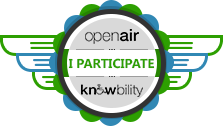While I have been trying to get cognitive rest and rest and trying to get better from my setback, my dear husband, Michael, has put together a proposal for a panel at SXSW festival. (If you are not familiar with SXSW, its a local festival here in Austin and I have more info about it below.)
This week, I have been helping send that out to get votes for my submission. Its been an interesting week of trying to minimize my computer use to help me get better and at the same time connect with others through my husband’s online mailings. I have managed it pretty well by only being on the computer for 20 minutes at a time and then coming back to it again later after cognitive rest and doing that off and on during the day.
I have found that the small iphone screen is actually easier for me to get feedback than my wide screen monitor right now, so I have taken advantage of that learning too.
Here’s my request for help to be selected for SXSW Festival and info on my topic.
The voting stops on Sept 5, but anyone can access the first link to see what I am proposing and background info. I think my husband did a great job with this!
Please vote (voting instructions detailed below) if you like it by Sept 5.
Otherwise, check out the panel description (by clicking the link posted below) and give me feedback about my panel on my blog!
I will post it on the blog if I am selected to do the panel.
Help Me Get Selected For SXSW Festival!
I need your vote!
I have submitted a panel for SXSW Festival about concussion and the brain.
Your vote for my panel will help me get selected to present at the Festival.
It’s a very competitive process. There are 3000 panels submitted this year and only “a small percentage” are accepted.
Please take 5 minute to register and vote to help me.
http://panelpicker.sxsw.com/vote/41233
Thank you!
Here are the details:
Some of you are familiar with the SXSW Interactive Festival already.
SXSW stands for South by SouthWest and the Interactive part is the fastest growing part of the festival. Interactive is the technology part (interactive=different kinds of media).
SXSW is an international festival and a global audience comes to Austin in March to hear speakers and see demonstrations.
Festival participants are interested in all kinds of subjects and how they can be improved through technological tools.
SXSW is a pretty amazing concept and the Interactive part has gotten a lot of media attention in the past years.
I have proposed a panel called:
Welcome to Your New Brain: Lessons from Concussion.
At this panel, I will talk about the learning I have had to understand how my brain functions, how my brain changes over time (neuroplasticity) and how to overcome cognitive deficits and diversity.
The lessons I learned and tools I use are useful even for those without an injury. In fact, I wish I had had them before my injury.
Here’s the link for the full text of my panel including supporting info like my cameo on NBC News and The Washingtonian article:
http://panelpicker.sxsw.com/vote/41233
Voting Instructions
So here is how you vote for me:
1. You register to vote here:
https://auth.sxsw.com/users/sign_up
Once you have done this first step, you have done the hardest part
2. Then you vote (vote = thumbs up)
http://panelpicker.sxsw.com/vote/41233
Thank you for your help! I will let you know how this turns out for me.
Anne



Recent Comments